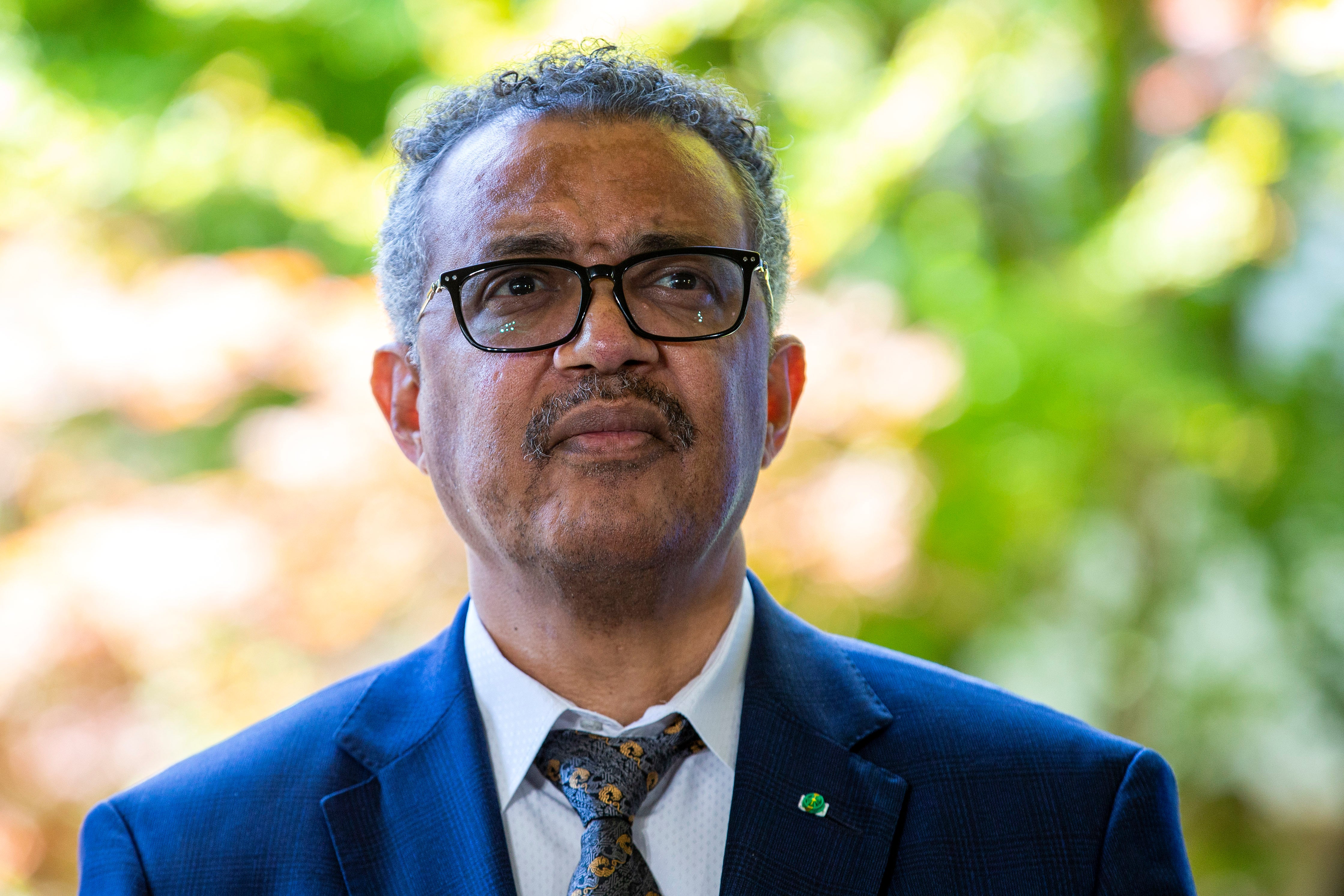WHO: Rich nations, vaccine firms should stop bilateral deals
The head of the World Health Organization has appealed to makers of COVID-19 vaccines and the wealthy countries buying them to “stop making bilateral deals” that hurt a U.N.-backed initiative to make the vaccines more available

Your support helps us to tell the story
From reproductive rights to climate change to Big Tech, The Independent is on the ground when the story is developing. Whether it's investigating the financials of Elon Musk's pro-Trump PAC or producing our latest documentary, 'The A Word', which shines a light on the American women fighting for reproductive rights, we know how important it is to parse out the facts from the messaging.
At such a critical moment in US history, we need reporters on the ground. Your donation allows us to keep sending journalists to speak to both sides of the story.
The Independent is trusted by Americans across the entire political spectrum. And unlike many other quality news outlets, we choose not to lock Americans out of our reporting and analysis with paywalls. We believe quality journalism should be available to everyone, paid for by those who can afford it.
Your support makes all the difference.The World Health Organization chief appealed on Friday to makers of COVID-19 vaccines and the wealthier countries buying them to “stop making bilateral deals,” saying they hurt a U.N.-backed effort to widen access to the jabs.
Tedros Adhanom Ghebreyesus said 42 countries are now rolling out such vaccines, mostly high-income and a few middle-income countries He called on countries that have more jabs than they need to make some available to the COVAX Facility — the U.N.-backed project to get vaccines deployed widely.
“Now, we are also seeing both high- and middle-income countries that are part of COVAX making additional bilateral deals,” he told reporters in Geneva. “This potentially bumps up the price for everyone and means high-risk people in the poorest and most marginalized countries don’t get the vaccine.”
“I urge countries and manufacturers to stop making bilateral deals at the expense of COVAX,” said Tedros, the WHO director-general.
Tedros also urged manufacturers to make the data about their vaccines available, which is needed for the U.N. health agency to be able to provide “emergency use listings” that can expedite their deployment.
The lack of such data “blocks the whole system of procurement and delivery,” he said.
WHO officials, who generally shun finger-pointing at specific countries and companies that they need to work with, did not specify which ones need to do more to help broaden access to vaccines.
But Canada, for example, is known to have far greater access to vaccines that its population needs. And partners Pfizer and BioNTech, which make the first vaccine that received emergency use approval from the WHO and countries like the U.S. and Britain, have not reached a deal to take part in the COVAX Facility.
Dr. Bruce Aylward, a special adviser to the WHO chief, said 50% of high-income countries are deploying vaccines — and “zero percent” of poor countries are.
“That is not equitable access,” he said.
Sharon Castillo, a Pfizer spokeswoman, said her company and BioNTech “are firmly committed to equitable and affordable access” to their vaccine for people around the world.
“As it relates to COVAX, we support its goal to supply two billion COVID-19 vaccine doses in 2021 to countries around the world, with half of those going to (low- and middle-income countries)" she said. "We are in active negotiations with COVAX to help it reach this goal and hope to finalize an agreement very soon.”
The WHO appeals come as the world has faced high case counts in recent weeks -- roughly 4 million new confirmed infections per week, said WHO emergencies chief Dr. Michael Ryan.
Tedros said some of the highest numbers of deaths recorded at any point in the pandemic have turned up in recent days, and faulted a lack of compliance with recommendations of health authorities.
The WHO also said a team of experts who had originally expected to arrive in China this week to look into the origins of the pandemic had not yet arrived, saying that now, “we expect to fix the travel dates next week.”
On Tuesday, Tedros said he was “very disappointed” that Chinese officials had not finalized the needed permissions for the team’s arrival in China.
The COVAX Facility has secured access so far to nearly 2 billion doses of vaccines produced by Swedish-British pharmaceutical maker AstraZeneca and its partner Oxford; the Serum Institute of India; U.S. giant Johnson & Johnson; and the partnership of France’s Sanofi and GSK of Britain.
___
AP Medical Writer Linda A. Johnson in Fairless Hills, Pennsylvania contributed to this report.
___
Follow AP coverage of the coronavirus pandemic at:
https://apnews.com/hub/coronavirus-pandemic
https://apnews.com/hub/coronavirus-vaccine
https://apnews.com/UnderstandingtheOutbreak